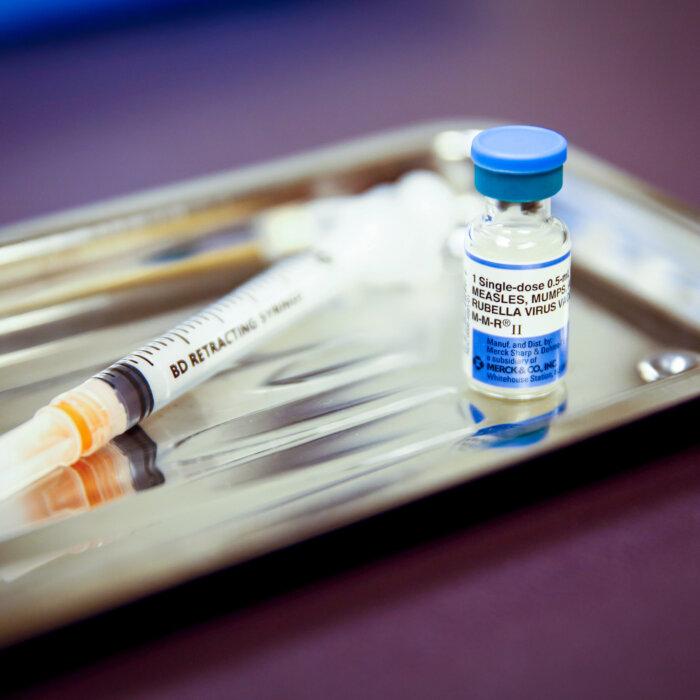A cross-party group of parliamentarians has written to the health and social care committee raising serious concerns about the Medicines and Health Regulatory Agency (MHRA) in relation to patient safety, accusing it of causing “needless deaths” and highlighting its conflicts of interest with the pharmaceutical industry.
A number of MPs and peers put their name to the strongly-worded letter, which was also signed by Oxford Professor of Evidence Based Medicine, Carl Heneghan, and the founder of Sling the Mesh campaign, Kath Sansom.
Addressed to the Health and Social Care Committee, the letter accuses the MHRA of operating a safety system that, “far from protecting patients, continues to put them at serious risk.”
It singles out Dame June Raine, chief executive of the MHRA, for criticism, saying that she “boasted” of the agency’s transition from “the watchdog to the enabler,“ which they say ”does little to quell suspicions of conflicts and the implications for patient safety.”
Signed by mainly Conservatives but also by one Labour, two DUP and two SNP members and a cross-bench peer, the letter draws parallels between past failings in the MHRA and the current reporting of vaccine damage, saying patient safeguarding measures have not been “robust” and have failed to flag up problems early enough.
Primodos, Vaginal Mesh and Sodium Valproate Investigations
It goes on to outline an investigation into previous patient safety failings, the Independent Medicines and Medical Devices Safety Review (IMMDS). This examined Primodos—a hormone-based pregnancy test kit which caused birth defects in the 1960s—as well as the vaginal mesh devices which harmed many women, and sodium valproate—a drug used for epilepsy and bipolar disorder, which is still in use and can cause birth defects.The investigation found that in all these instances, the response of the health care system was “not sufficiently robust, speedy or appropriate, causing patients to suffer, in some cases, life-changing or fatal, avoidable harm.”
‘Gross Under-Reporting of Adverse Reactions’
The group outline serious concerns with the Yellow Card scheme—the MHRA’s system for reporting all adverse drug reactions (ADRs), including those for all vaccinations, which is intended to serve as an early warning system.They point to research which shows around 16.5 percent of hospital admissions are caused or complicated by ADRs and claim the Yellow Card system is “failing patients,” because “it is clear that there is gross under-reporting, and our complaints systems are both too complex and too diffuse to allow early signal detection.”
The Yellow Card system has involved patients since 2005, but only one in 12 patients are aware that they can report a suspected ADR, the APPG says, pointing to surveys which found as few as two in every one hundred bad reactions were being reported with pharmacies not usually promoting the scheme.
According to the MHRA’s own estimation, done in 2018, around 10 percent of serious reactions and between 2 percent and 4 percent of non-serious reactions are reported.
“So far, all the MHRA has done is a ‘look and feel redesign’ of the Yellow Card brand. The real issue at hand is mandating logging by doctors. It is currently only mandatory for the industry to report adverse events, but industry will have no idea as they are not at the coalface seeing patients, like GPs and consultants are,” the group writes, calling for a more user-friendly and transparent system.
The letter goes on to admonish the MHRA for failing to reform after a 2004/2005 House of Commons Health Committee report, The Influence of the Pharmaceutical Industry, which flagged up that the body was unusual in being one of few European regulatory agencies to be funded entirely by fees derived from services to the pharmaceutical industry.
The APPG goes on to criticise the “lack of transparency” in the MHRA, particularly in relation to its responses to Freedom of Information requests, finding that since 2019, 76 percent of requests have been answered outside the 20 working days statutory response time, and that often “exemptions were applied or vague or evasive responses were received.”
The parliamentarians also call for a “separate, dedicated register for conflicts of interest” for all those working in the health care sector, to include the mandatory reporting for the pharmaceutical and medical devices industries of all payments made to research institutions, teaching hospitals and individual clinicians.

Death of Lisa Shaw Cited as Example of ‘Needless Death’
The APPG accuses the MHRA of “a history of failing patients” and says it has failed to make meaningful reforms since the IMMDS review, and that in failing to monitor and follow up Yellow Card reports properly—particularly with the COVID-19 jabs—it is “failing the basic principles of good pharmacovigilance practice.”The letter was made public just before a clip from GB News went viral, after vaccine-damaged Scotsman John Watt confronted Prime Minister Rishi Sunak live on air about the lack of support for those harmed by the COVID-19 jabs, telling him that victims have been “silenced” and left without adequate compensation.
The APPG’s letter points to an FOI which revealed the MHRA followed up just 54 percent of reported deaths which were possibly linked to the vaccinations. It criticises the way the MHRA responded when it became clear the AstraZeneca vaccine caused the autoimmune condition Vaccine-Induced Thrombotic Thrombocytopaenia (VIIT), pointing to the fact that Denmark and other European countries suspended the vaccine immediately on March 11. 2021, pending further investigation.
“By contrast, the MHRA said it could see no evidence of a link despite a signal from the Yellow Card reports as early as Feb. 7, only published safety advice on April 7, 2021, by which time 24 million people had been vaccinated in the UK without the MHRA’s pharmacovigilance system detected a problem.
“Two months later, May 7., the MHRA withdrew AZ for under 40s, but only after further needless deaths, such as that of BBC radio reporter Lisa Shaw who received her first dose of the AZ vaccine on April 29. Presumably, this is what Dr. Raine meant as ‘enabling.’”
A spokeswoman for the HSCC, which is chaired by Conservative MP Steve Brine, confirmed to The Epoch Times that the letter had been received and its contents “noted” by the committee.
“These include incorporating patient views and lived experience into our safety reviews; involving patients in the early stages of planning medicines development, and building a new responsive reporting system for patients to tell us about any adverse incidents. We have also led on legislative changes to strengthen surveillance for medical devices and medicines, meaning patient safety is embedded firmly into law.
“Our progress so far in making changes based on meaningful patient involvement gives us a solid base to build upon as we continue on this important journey.
“We are committed to enabling innovation that brings transformative medical products safely to patients.’’
The MHRA last year piloted a genetic research project, known as a “biobank,” in a joint venture with Genomics England in an attempt “to better understand how a patient’s genetic makeup can impact the safety of their medicines.”It said the Yellow Card biobanks will contain genetic data and patient samples and will operate alongside its Yellow Card reporting site for suspected side effects, as “part of a long-term vision for more personalised medicine approaches, as scientists will use the repository of genetic information in the biobank to determine whether a specific genetic trait caused a side effect from a medicine.”







